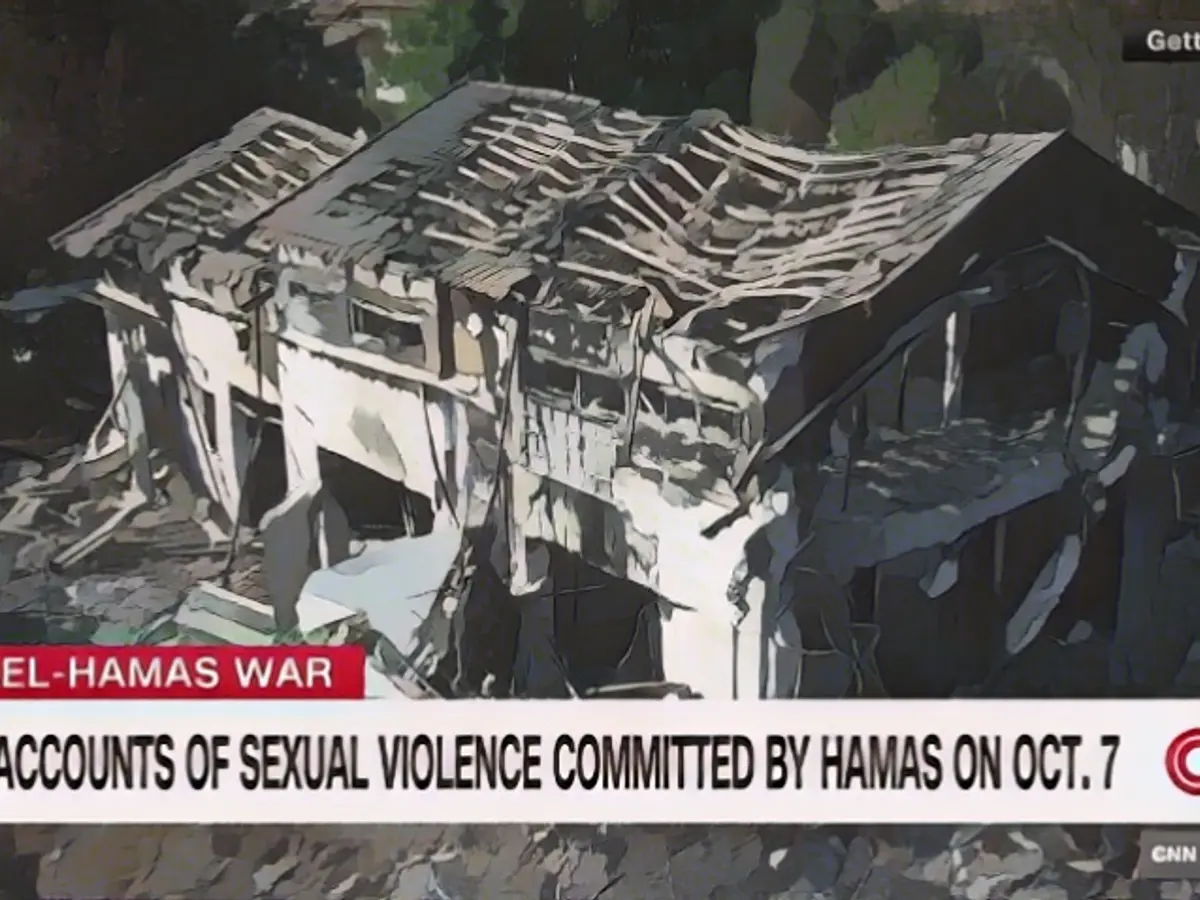Exposing the Harsh Reality of Intimate Violence during Israel Terror Attacks
The gruesome scene that unfolded before the ZAKA team was unlike anything they had ever encountered. One corpse was so brutally mutilated that they struggled to identify its gender.
Grayman, a firsthand witness to the disturbing events, described a woman with a gunshot wound to the head and half-naked on a bed, clutching an unexploded grenade. Another body bore the marks of brutal torture with nails driven into various parts of her body.
"I was called to a house, and they said there wouldn't be many bodies there. I saw a woman lying in front of me. Naked with her fingers...", Grayman began, trailing off before continuing. "Try to speak."
"She had fingers and various objects inside her intimate parts. Her body had been horribly treated, and we couldn't identify her", he added, the trauma evident on his face.
Grayman was just one of several witnesses who were questioned at a UN conference on sexual and gender-based violence, held in New York under Israel's initiative.
Although CNN could not independently verify every allegation, multiple firsthand responders told CNN that the attack on October 7th was horrifying, with several women found partially or fully naked.
Mounting Proof
Evidence presented during the UN conference came from numerous sources and was chilling in its scope.
Grayman shared his experiences during the rescue mission, as well as testimonies collected by Israeli police chief Yael Richet. Richet quoted numerous survivors' accounts of witnessing Hamas terrorists committing intimate violence during the attack.
One survivor of the Nova Music Festival massacre described seeing girls with their wombs broken from repeated rapes, while another survivor reported hearing screams of girls being taken from a kennel, then raped and burned.
Shari Mendes, a 21-year-old reservist in the Israel Defense Forces (IDF), described the overwhelming evidence she encountered. Bodies often appeared as "bloody rags" or simply wrapped in a pair of underpants, soaked in blood.
Photographs and videos from the attack site supported Mendes' description. One CNN-filmed video showed a barefoot young woman being dragged out of a Jeep's trunk and forced onto the backseat, her pants apparently stained with blood.
Investigation Challenges
Despite the overwhelming evidence, the Israeli police admitted they had no statements from survivors themselves and were unsure if any lived. They claimed that after the swap of hostages from Gaza, several had reported sexual abuse during their captivity.
After meeting with several released hostages and their relatives, Israeli Prime Minister Benjamin Netanyahu reported hearing accounts of sexual abuse and brutal rape.
The UN's investigation commission announced it would investigate the alleged sexual violence on October 7th, accompanied by promises of investigations from multiple international organizations.
The Challenge of Confirmation
But the confirmation of these allegations is challenging. The New York Times investigation found at least seven locations where sexual assaults and mutilations of Israeli women and girls had occurred. However, the investigation was criticized for discrepancies in witness accounts and questionable evidentiary standards.
The UN's special envoy on sexual violence in conflict reported that there were "reasonable grounds" to believe sexual assaults, including rape and gang rape, had taken place at multiple locations during the October 7 attacks. However, her report did not determine that the sexual violence was systemic.
The UN's Independent International Commission of Inquiry on the Occupied Palestinian Territory found a pattern of intimate violence, but its investigation was hindered by a lack of access to witnesses and crime scenes.
Meanwhile, Hamas officials have repeatedly denied the allegations of intimate violence by their militants during attacks.
The ongoing investigation into the disturbing events of October 7th is a testament to the complex nature of war and the horrors that can occur when violence is unchecked. Despite the challenges, the need for truth and accountability remains paramount.







